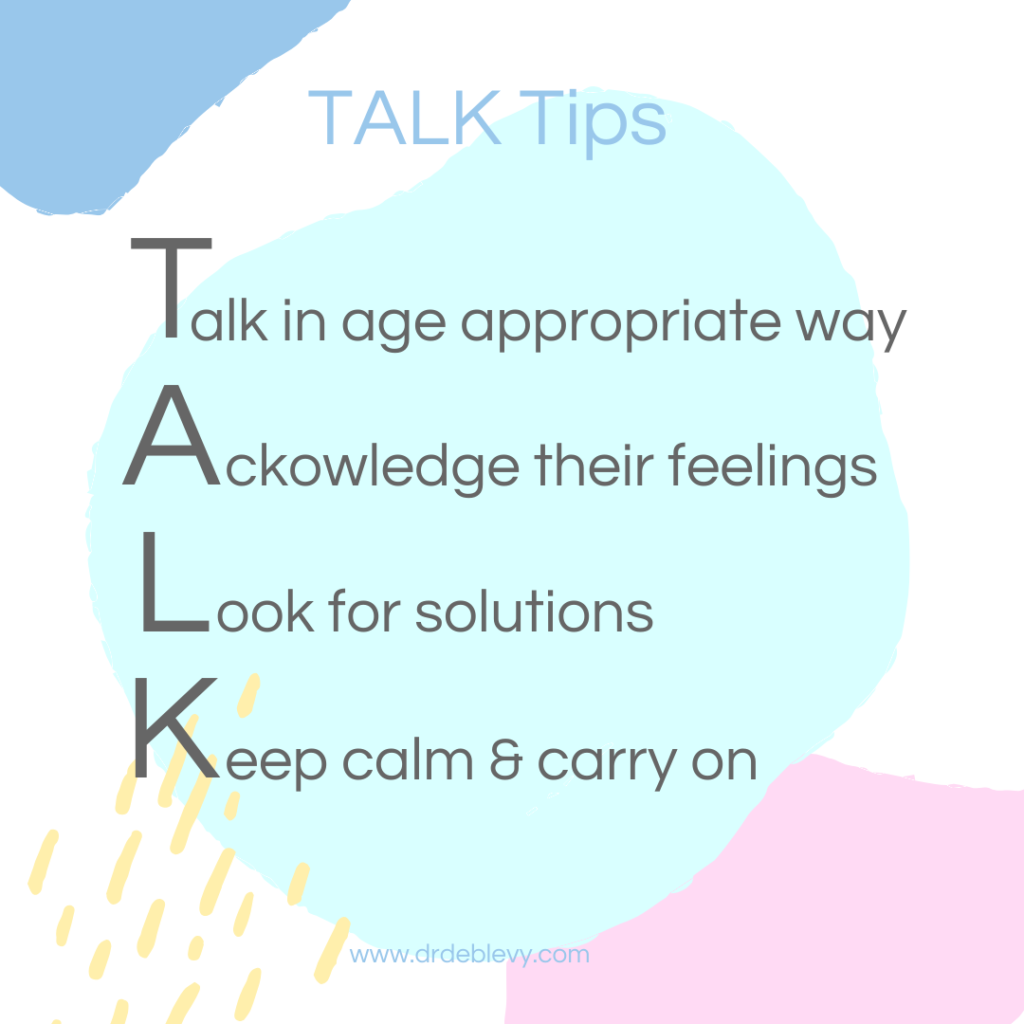Useful tips to help your child manage their feelings during the Covid 19 pandemic or any stressful situation.
Times are tough right now no matter who you are. This means it’s tough for our kids too. But that’s no surprise considering how their lives have been turned upside down. Their schedule of school, activities and play dates have all changed considerably. For some children this hasn’t affected them at all, they may even be thriving, but for for others it’s a real struggle.
There are certainly children who are more vulnerable right now including those you’d describe as anxious or a worrier. And when you look at the statistics this means a lot of children. Did you know that nearly 7% of children in Australia have anxiety? That’s close to 1 in 15 children, so chances are that at least one child in your child’s class or group of friends will have some form of anxiety. I'm not referring to a bit of worrying or stress, this is totally normal and is a part of our survival instincts. I am referring to anxiety negatively impacting on life and causing significant distress.
I recently spoke in an International Mental Health summit and one topic discussed was how, as parents, we can help our children. One important tool is knowing how to effectively communicate.
Although good communication is not a time or situation limited tool, I think it's especially important right now during the covid pandemic as there is just so much information and misinformation out there on T.V., social media, in schools, everywhere and it's causing a lot of stress for a lot of children.
How can we help our children?
If you've a child who tends to worry, some may suggest not talking about covid in front of them. I don't agree with this. I think it may be helpful limiting the conversation but I never believe in totally excluding children from any important issue or event. We also know that anxiety can be driven by uncertainty and the unknown so dealing with issues and talking about them helps. So what should we talk about and when? How can we help our children manage their feelings and at the same time learn healthy coping skills for future stresses?
For me I always want my children to feel "heard" so they know their feelings matter and that they can always feel comfortable talking to me about anything! Although they're little now, I hope that this is something that lasts forever.
I think the other important goal is to help children build their resilience. As. a parent it can be so tempting to want to solve all our children's problems, but it is so important for them to also learn how to cope with adversity on their own. I want a child to realise that they have their own resources to cope with stresses and challenges. What a wonderful skill to have!
I have devised a quick hack for you: TALK Tips. By using this I hope you can help your child explore their feelings in a secure way whilst also helping them build resilience. These can be used any time a child is feeling anxious but here I'll use covid to illustrate.
TALK TIPS for Covid 19

Talk to your child in a developmentally appropriate way. Be realistic and reassuring. Try to dispel any of the fearmongering which means seeking out reputable sources of real facts. For example explain that nearly all children who get coronavirus will just have a cold and not need to go to hospital, only a very few children will get very sick from it. You can also remind them of the many colds they've had and totally recovered from. Talking itself helps to alleviate anxiety.
Acknowledge their fears and feelings. You may need to help your child identify what they are feeling but talking about and having their emotions heard will help them feel more in control. It may help to share your own feelings for example, when mummy sees people with masks on their faces I feel scared but I know it is helping to keep us healthy.
Look for solutions. This helps a child strengthen their coping skills by problem solving perceived threats. It's a key step in helping a child build resilience. For example, if your child is scared their friends won’t like them anymore when they return to school, you can help them work out ways to maintain friendships or devise an action plan if they are excluded at school.
Keep calm and carry on. I am not being flippant here but what I am referring to are two suggestions. Firstly keep calm within yourself as a parent. Children will pick up on your fears and anxieties which will not help. Instead showing them positive ways to cope with stress and distress is a great opportunity to model healthy behaviours for them to learn. Carry on means maintaining a sense of routine and structure, In my opinion all children benefit from a sense of structure as it gives them a sense of security. You can draw up a schedule blocking off learning time, free time, meals etc.
I know I'm not a psychologist but I really think that these steps can help your child. I do want to mention something else though. No matter how hard we try and how much we love our children, it can be hard. As parents we can get it wrong and we can miss things our children are going through. I think this is why community is important. Sometimes a teacher or a relative may see something you don't. Or perhaps your child would rather talk to someone else. That's okay. Don't be hard on yourself. It really does take a village to raise a child!
If you are concerned about your child please consider reaching out for help either within your community or there are also excellent online resources.
If you've found this helpful or interesting please share it and sign up for my newsletter 🙂


